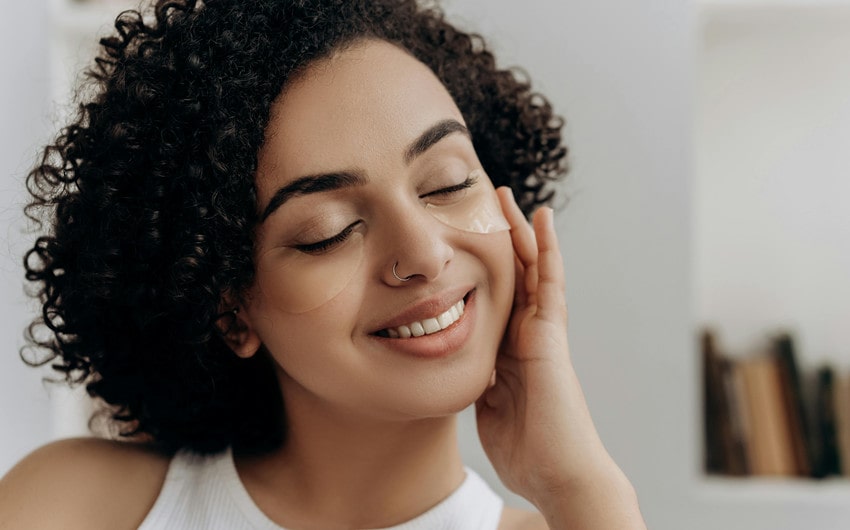The Secret to Radiant Skin: Reducing Inflammation Naturally
Your skin’s appearance reflects your overall health, and inflammation is symptomatic of what’s going on underneath it. Chronic inflammation can cause redness, acne, premature aging, and a dull complexion. While heavy lotions, serums, and creams can be effective, they’re usually expensive and don’t address the underlying cause.
Natural methods can help you reduce inflammation and achieve glowing, healthy skin. Even simple changes, like sleeping more and eating a balanced diet can improve your health and help you manage the root cause of your redness and acne.
Understanding Inflammation and Its Effects on Skin
Inflammation occurs when your body is battling triggers like infections, allergens, irritants, or stress. This leads to the familiar signs of poor health like redness, swelling, and general irritation. While acute inflammation heals your body, chronic inflammation can wreak havoc on your skin.
These “red” flags are indicative of inflammation.
• Irritation: Persistent redness, sensitivity, or small bumps.
• Swelling: Puffiness around the eyes or uneven skin texture.
• Breakouts: Acne caused by hormonal imbalances and inflammation.
• Dullness: A lack of vibrancy due to disrupted skin cell turnover.
If your skin is inflamed, avoid using hot water, harsh soaps, scented lotions, or cosmetics. Never scratch the affected area. Instead, apply cool compresses, gentle cleansing, and a basic moisturizer to help.
Anti-Inflammatory Foods for Glowing Skin
What you eat and drink plays a significant role in skin health. Try adding anti-inflammatory foods to combat oxidative stress and promote a clear complexion.
• Fatty Fish: Salmon, mackerel, and sardines are rich in omega-3 fatty acids and contain nutrients that reduce redness and puffiness.
• Berries: Blueberries, raspberries, and strawberries are packed with antioxidants that combat free radicals.
• Leafy Greens: Spinach, kale, and broccoli provide essential vitamins that improve your health and soothe inflammation.
• Nuts and Seeds: Pack a few handfuls of almonds, walnuts, and flaxseeds to ensure you get all the healthy fats you need for good health.
• Spices: Turmeric and ginger offer anti-inflammatory properties that benefit the skin and overall health.
• Hydrate: Staying hydrated can reduce your stress and improve your body’s immune response. In addition to H20, try green tea, vegetable joists, tart cherry juice, and matcha.
You can find creative ways to integrate those into your diet. Try blending berries into smoothies or sprinkle them on oatmeal; add a handful of leafy greens to soups, omelets, or pasta dishes. Grill fatty fish twice a week, and snack on a mix of nuts and seeds for an on-the-go boost.
Lifestyle Changes to Combat Inflammation
Simple lifestyle adjustments can also lower inflammation levels, promoting healthier skin over time. For instance, stress triggers cortisol production, which exacerbates inflammation. Incorporate these techniques into your routine:
• Meditation and Deep Breathing: Dedicate 10 minutes daily to calming practices.
• Yoga or Stretching: These activities lower stress hormones while improving circulation.
• Quality Sleep: Sleep gives your body a chance to repair itself after a busy day. Aim to sleep 7 – 9 hours a night and proactively address issues like poor sleep hygiene.
• Stay Active: Exercise is crucial for your overall health and promotes blood circulation throughout your body. Even 30 minutes of exercise a day can have a profound impact on your skin’s appearance.
Supplements That Support Skin Health
We all wish we could get the nutrition we need from whole foods alone. However, if you’re experiencing chronic inflammation due to stress, it’s unlikely that you have time to cook three full, balanced meals a day. Supplements can reduce inflammation and provide some of the nutrition you need to reduce inflammation naturally. Consider trying:
• Vitamin C: Researchers found a link between higher vitamin C levels and having fewer chemicals that cause inflammation. Vitamin C also boosts the immune system.
• Vitamin D: Low vitamin D levels have been associated with low-grade systemic inflammation. This vitamin is essential for bone-building, immune regulation, and skin cell repair, especially for those with limited sun exposure.
• Omega-3 Fatty Acids: Found in fish oil, they help minimize redness and improve skin hydration.
• Curcumin: Curcumin is thought to prevent chronic inflammation, allergies, and arthritis. You can improve your curcumin intake by eating turmeric and black pepper.
Always consult a healthcare provider before introducing new supplements to your routine and shop around before settling on a supplement of choice.
Building a Sustainable Routine for Long-Term Benefits
Achieving radiant skin requires a balanced and consistent approach. Combining dietary changes, regular physical activity, stress management, and supplements creates a solid foundation for long-term benefits.
• Plan Ahead: Prepare anti-inflammatory meals and snacks to stay on track.
• Set Realistic Goals: Incorporate new habits gradually to avoid feeling overwhelmed.
• Track Progress: Take regular pictures of your skin to ensure you notice when lifestyle changes improve (or worsen) your appearance.
A new routine requires upfront effort. However, committing to these practices will produce gradual and lasting improvements in your skin’s texture, tone, and glow.
Start Your Holistic Approach To Skincare
Reducing inflammation naturally is one of the most effective ways to achieve radiant, healthy skin. These changes can improve your mental health, too. Start by focusing on dietary changes, stress management, regular exercise, and targeted supplements to address the root causes of skin issues. Remember, consistency and patience are key. Incorporate a soothing skincare kit with gentle, nourishing ingredients to calm your skin and enhance your holistic routine. A holistic approach to skin health ensures that the benefits extend beyond your appearance, supporting your overall well-being.


